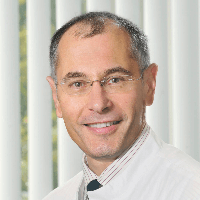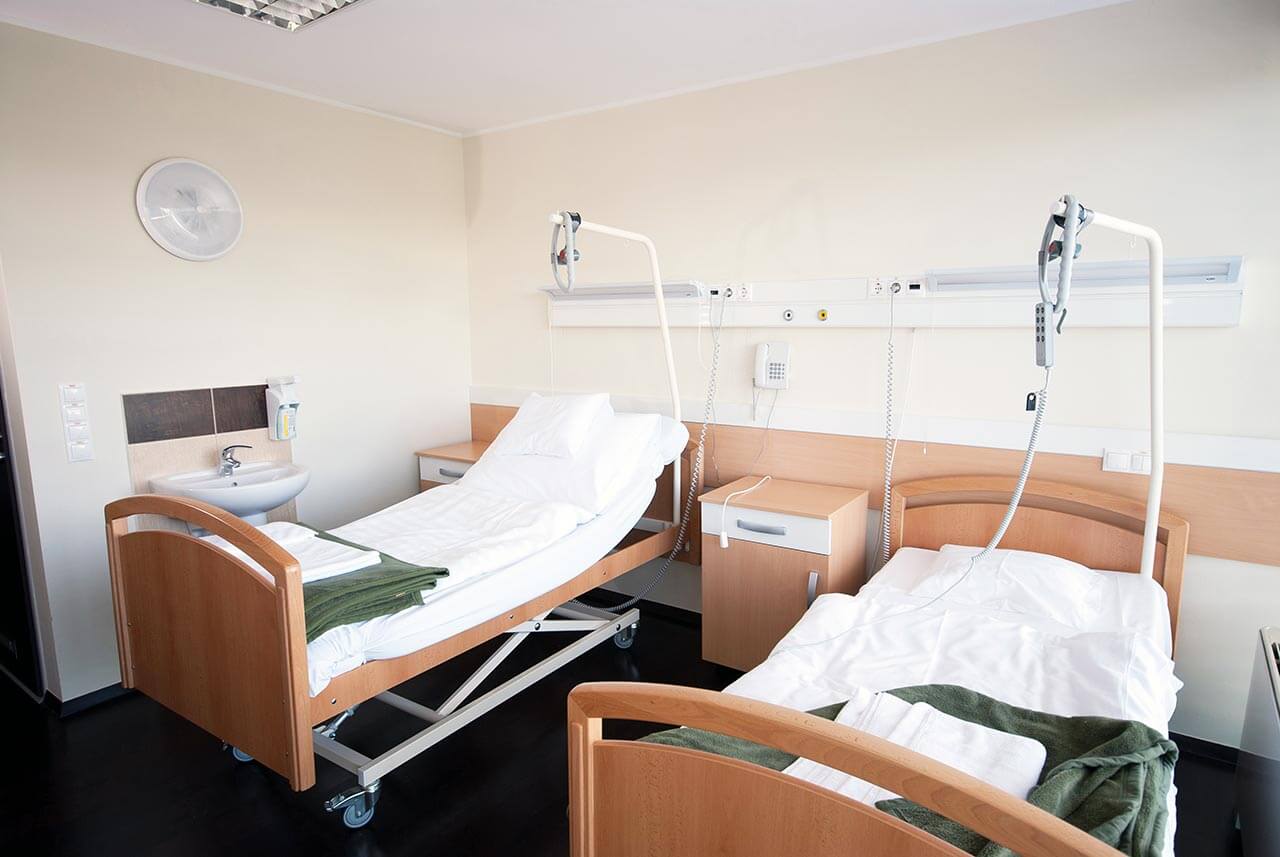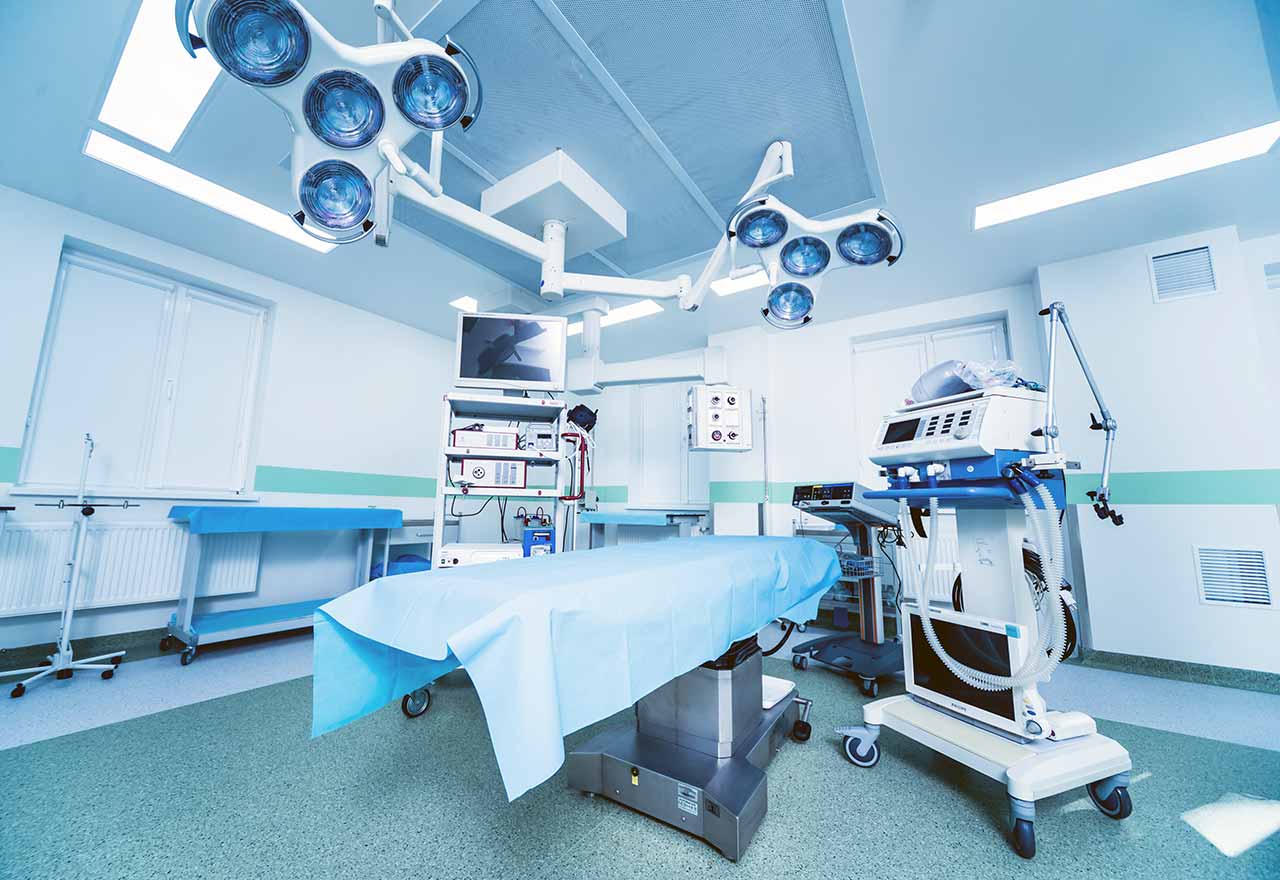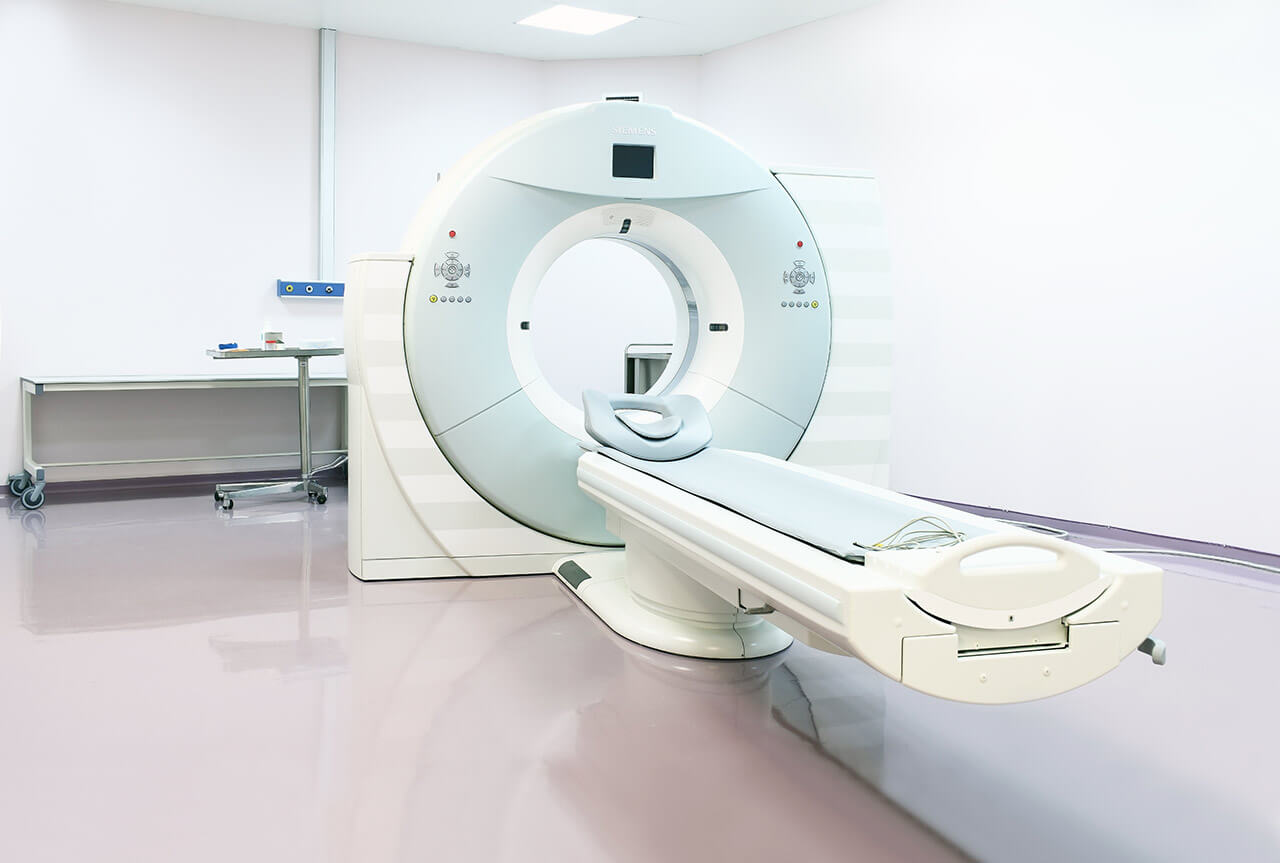
The program includes:
- Initial presentation in the clinic
- clinical history taking
- review of medical records
- physical examination
- laboratory tests:
- complete blood count
- biochemical analysis of blood
- thyroid function test (TSH-basal, fT3, fT4)
- mineral metabolism analysis (Na, K, Ca, Mg)
- lipid metabolism (HDL/LDL, cholesterol, triglycerides,
Lip(a), homocysteine) - iron content (ferritin, iron)
- blood coagulation analysis (aPTT, PT, INR)
- metabolic status (uric acid, total glucose, HbA1c)
- inflammatory parameters (CRP, ESR)
- cardiovascular disease risk markers
- lung function test (Spirometry)
- resting and exercise ECG
- Holter monitoring (24h)
- color doppler echocardiography
- transesophageal echocardiography (tee)
- color doppler sonography of cerebral vessels
- thoracentesis of pleural effusions
- symptomatic treatment
- control examinations
- the cost of essential medicines and materials
- nursing services
Required documents
- Medical records
- ECG (if available)
- Echocardiography (if available)
Service
You may also book:
 BookingHealth Price from:
BookingHealth Price from:
About the department
According to the Focus magazine, the Department of Cardiology at the HELIOS University Hospital Wuppertal ranks among the top German medical facilities specializing in the treatment of cardiovascular diseases!
The department offers the full range of services in the field of modern cardiology – from clarifying diagnostics and restoration of patency of coronary vessels to implantation of artificial heart valves. The department has four cardiac catheterization laboratories, as well as a hybrid operating room. The department offers modern and proven catheter techniques (for example, TAVI, MitraClip, and others) for the treatment of cardiac pathologies. The hybrid operating room combines a cardiac surgical operating room with a fully equipped 150 sq.m. cardiac catheterization laboratory, which was commissioned in 2012. The hybrid operating room allows applying the widest range of techniques, ranging from the treatment of aortic valve stenosis to the treatment of acute coronary pathologies. The team of the department's doctors devotes enough time to consulting patients and examining the cardiovascular system in order to choose the optimal treatment tactics that will allow a person to restore health and lead a full life. The department is headed by Prof. Dr. med. Melchior Seyfarth.
The department has a modern technical base for a comprehensive examination and determining the causes of the development of heart disease or heart structural changes. The medical facility conducts all currently available cardiac ultrasound examinations: transthoracic echocardiography, Doppler echocardiography, transesophageal echocardiography, stress echocardiography, contrast-enhanced ultrasound scanning, etc. Whenever required, the department carries out functional diagnostics of the heart. In collaboration with radiologists and specialists in nuclear medicine, cardiac CT and MRI, as well as myocardial scintigraphy are conducted.
The department's therapeutic options are quite diverse – cardiologists use effective pharmacotherapy regimens and sparing interventional catheter techniques. If clinically indicated, hybrid interventions combining classical surgical techniques and catheter procedures are performed in collaboration with cardiac surgeons. The hybrid operating room is designed for the interventions to treat heart valve pathologies, coronary artery bypass grafting (minimally invasive direct coronary artery bypass grafting and off-pump coronary artery bypass grafting), surgical procedures to implant pacemakers, defibrillators, devices for cardiac resynchronization therapy, etc. The use of catheter techniques and hybrid interventions means that treatment will take place with minimal trauma to healthy tissue and without thoracotomy. Such operations can be performed on high-risk patients for whom open surgery is contraindicated.
The department admits many patients with aortic valve pathologies. Doctors often have to resort to interventional procedures because pharmacotherapy does not give a satisfactory result. As of today, transcatheter aortic valve implantation (TAVI) is a breakthrough in cardiology, since it allows restoring aortic valve function without extensive traumatic surgery. The TAVI procedure is performed without a single incision in the thorax, since a catheter is inserted through the X-ray-guided puncture in the femoral artery. Transcatheter aortic valve implantation does not require connection to a heart-lung machine and general anesthesia. The department's specialists have sufficient experience and professional skills for the treatment of aortic valve pathologies using the TAVI procedure, so patients can be confident in the high efficiency and safety of the procedure.
An integral part of the department's clinical practice is the treatment of heart rhythm disturbances. Atrial fibrillation is one of the most common diagnoses in this field of cardiology. The pathological condition is a heart rhythm disturbance that causes abnormally frequent and irregular atrial contractions. Quite often, atrial fibrillation can be successfully controlled with medication, but sometimes additional treatments are required. The most effective of these are electrical cardioversion and catheter ablation. During the first procedure, the normalization of the heart rhythm occurs due to the impact on the heart of a controlled pulsed electric current. The first step of the procedure is to connect the patient to an ECG monitor with a cardioverter-defibrillator. The patient receives an intravenous injection of a short-acting anesthetic. The cardiologist then delivers an electrical impulse, the energy of which stops the work of the heart for a short time. This allows the sinus node (the natural pacemaker of the heart) to regain control over the heart rate and contraction. The patient can leave the hospital a few hours after the procedure, and in the future he will need periodic heart ECG monitoring. Another modern treatment for atrial fibrillation is catheter ablation. The procedure is based on isolating the focus of pathological electrical activity by creating a patch of scar tissue around it. After that, abnormal electrical signals can no longer reach the heart. Scar tissue is formed due to high or low temperature exposure. The department's specialists carry out catheter ablation with the use of analgosedation (a combination of anesthetic and sedative medicines). The doctor accesses the pathological focus by making a small incision in the groin, through which a catheter is inserted into the femoral vein. The specialist advances the catheter into the right atrium under X-ray guidance, punctures the interatrial septum with a special needle and reaches the required area in the left atrium. The duration of the interventional procedure is 2-3 hours, after which the patient is under constant medical supervision in the hospital for 1-2 days. The catheter ablation provides high success rates in the treatment of atrial fibrillation. The department's cardiologists select the optimal treatment for atrial fibrillation based on the patient's clinical data.
The department's clinical focuses include:
- Diagnostic services
- Cardiac ultrasound scanning
- Transthoracic echocardiography
- Doppler echocardiography
- Transesophageal echocardiography
- Stress echocardiography
- Contrast-enhanced cardiac echocardiography
- Color Doppler and Duplex sonography
- Cardiac imaging (in collaboration with specialized doctors)
- Cardiac CT
- Cardiac MRI
- Radioisotopic examinations
- Myocardial scintigraphy (in cooperation with specialized doctors)
- Cardiac and pulmonary function testing
- Body plethysmography
- Ergometry and ergospirometry
- 24-hour blood pressure monitoring
- Orthostatic test
- Diagnostic cardiac catheterization
- Coronary angiography
- Cardiac ultrasound scanning
- Therapeutic services
- Pharmacotherapy for cardiovascular diseases
- Emergency medical care for acute coronary syndrome
- Catheter-based therapy
- Percutaneous transluminal coronary angioplasty
- Rotablation
- Coronary artery stent implantation
- Atrial septal defect closure
- Patent foramen ovale closure
- Valvuloplasty
- Cardiac resynchronization therapy for heart failure
- Atrial appendage closure for thromboembolism prevention
- Left ventricular assist device implantation
- Hybrid interventions combining classical open surgery and catheter techniques (in collaboration with cardiac surgeons)
- Transcatheter aortic valve replacement (TAVR)
- Minimally invasive transcatheter MitraClip procedure
- Other diagnostic and therapeutic methods
Curriculum vitae
Higher Education
- 1982 - 1990 Study of Human Medicine, Ruprecht Karl University of Heidelberg.
- 1989 Medical Training at Harvard Medical School.
Professional Career
- Since October 2010 Head Physician of the Department of Cardiology at the HELIOS University Hospital Wuppertal and Professor of the Department of Cardiology at the University Witten-Herdecke.
- October 1999 - September 2010 Medical Advisor and Assistant Professor, Department of Cardiology, German Heart Center Munich, University Hospital Rechts der Isar Munich.
Qualifications
- Board Certification in Internal Medicine, Cardiology and Intensive Care.
- Additional Qualification in Heart Failure Treatment.
Photo of the doctor: (c) Helios Universitätsklinikum Wuppertal
About hospital
According to the prestigious Focus magazine, the HELIOS University Hospital Wuppertal ranks among the top medical facilities in Germany!
The hospital rightfully enjoys the status of the maximum care medical facility and provides its high-quality services in all modern fields of medicine. The hospital operates on the basis of the Witten/Herdecke University, which was opened in 1982 and today is considered one of the best in Germany. Thus, many head physicians of the medical complex are in charge of the corresponding department at the university, which contributes to the close intertwining of research activities and clinical practice. The hospital has long traditions and its own values – the main goal of doctors is to provide comprehensive medical care focused not only on curing the disease, but also on the patient's personal needs.
The hospital has 1,000 beds. The doctors of the medical facility admit more than 50,000 inpatients annually. In addition, more than 100,000 outpatients undergo diagnostic and therapeutic procedures. Such high attendance rates speak for themselves and are undeniable proof of the high-quality medical service of the European level. The medical staff of the hospital has more than 2,500 employees, whose main task is to restore the patient's health and provide him with a decent quality of life.
The hospital has more than 26 specialized departments, as well as many narrowly focused centers and institutes dealing with the treatment of patients suffering from a particular group of diseases: Breast Center, Cancer Center, Cardiology Center, Trauma Center, Spine Center and others. The primary clinical focus of the medical center is cancer treatment.
For more than 25 years, the hospital has been running a special quality management system for medical care, which regulates the aspects of work of the medical staff, compliance with hygiene and safety standards during diagnostics and treatment. Consequently, patients can be sure that their health is in the safe hands of true professionals who work in accordance with the latest medical standards.
Special attention should be paid to the honors of the hospital for excellent patient care. The medical complex has quality certificates from the German Cancer Society (DKG), the German Trauma Society (DGU), the German Cardiac Society (DGK), the German Stroke Society (DSG) and other professional German societies.
Photo: (с) depositphotos
Accommodation in hospital
Patients rooms
The patients of the HELIOS University Hospital Wuppertal live in comfortable single, double, triple and quadruple rooms. Each patient room has an ensuite bathroom with shower and toilet. The standard room furnishings include a comfortable automatically adjustable bed, a bedside table, a wardrobe, a TV and a telephone. The hospital has Wi-Fi (free). For maximum patient comfort, there is a nurse call device on the bedside table. This device allows the patient to control the TV, radio, turn on or off the lights, and adjust the position of the bed.
The patients of the hospital are also offered accommodation in enhanced-comfort rooms. These rooms additionally provide a safe and a free minibar with soft drinks. The enhanced-comfort rooms also have a spacious bathroom with hairdryer, bathrobe, towels and toiletries.
Meals and Menus
The patients of the hospital are offered three meals a day: breakfast, lunch and dinner. The menu offers a variety of delicious dishes to suit all tastes, including dietary and vegetarian options.
The hospital also has a bistro where one can taste delicious hot dishes, cold snacks, desserts, as well as a cup of tea, coffee or refreshments.
The patients staying in enhanced-comfort rooms are offered a separate menu that includes a wider and more refined range of dishes. In addition, fresh fruit, tea, coffee and desserts are delivered to the patient room every day, if desired.
Further details
Standard rooms include:
Religion
The religious services are available upon request.
Accompanying person
During an inpatient program, your accompanying person can stay with you in the patient room or in the hotel of your choice.
Hotel
During an outpatient program, you can stay in the hotel of your choice. Our managers will help you choose the most suitable options.




